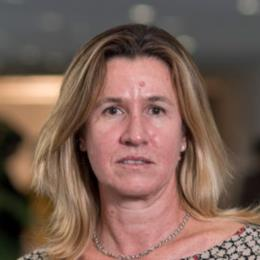Social Resistance and Everyday Life: Forms of Civil Society in the Arts
A special issue of Social Sciences (ISSN 2076-0760).
Deadline for manuscript submissions: closed (13 October 2023) | Viewed by 5617
Special Issue Editor
Interests: critical sociology; social theory; art as social criticism; social processes; active citizenship; social and cultural dynamics of coexistence in multicultural contexts
Special Issue Information
Dear Colleagues,
In his work Steps to an Ecology of Mind, Gregory Bateson introduces the question of order and disorder by publishing the dialogue with his daughter Cathy, where she is concerned with "order" and "disorder" in the world. As she says, “Dad, why do people always get other people's things wrong?” He replies, “Well, it's not as easy as it might seem. At first what does "disorder" mean?” (Bateson, 1972).
If we take the opportunity to observe social reality in its making, we cannot fail to realize that the concept of order does not fall within human capacity tout court but is the result of a process of interaction, as well as that of creativity.
However, when an artist manifests universal meaning in a new way, we are enchanted. The ideas of both order and creativity are the result of a dynamic that, ultimately, immensely exceeds the human capacities that generate it. But there are moments in history in which change is possible through an intervention of creativity, a change in perspective on reality and its internal dynamics. Innovation is the result of this creativity. The change as a result of innovation is not given as a mere adaptation to new events, as we can also experience today with immigration or war, but, on an individual level, it is the ability to anticipate the experience by resorting to a re-elaboration of the same individual experience into a wider and more general experience—I would say universal—thus transforming every type of reaction to the new into a real “other”. Creativity is a way of thinking, otherwise called "divergent thinking", but not only that: creativity is an act that gives birth to something that was not there before (Popitz, 2000). In other words, Adorno thought that in contemporary society, creativity or the arts could have been the only way out to the rational society. And today, we can say that it is more than that: it is the capacity that only human beings have of "das Seiende auβerhalb seiner selbst als ein Anderssein, als eigenartiges So-Sein zu erfassen" (Popitz, 2000).
From this point of view, this call invites all reflections of sociology of the arts in terms of the social meaning of artistic work, which is its possible social function both in terms of the reflexivity of social research and in terms of social theoretical perspectives, as well as the analysis of artistic manifestations. Arts as active forms of civil commitment and creativity often operate as more effective social criticism than other intellectual démarche.
Topics include (but are not limited to):
- Social theory and the arts;
- On creativity and its social function;
- Arts as social resistance;
- Arts and democracy;
- Arts and social change;
- Arts and well being;
- Arts, society and digitalization;
- Arts and civil engagement;
- Arts and memory;
- Arts and urban strategies;
- Artistic forms as a way to recapture community and solidarity.
Prof. Dr. Ilaria Riccioni
Guest Editor
Please send abstracts to Ilaria Riccioni (Ilaria.Riccioni@unibz.it) by 16 July 2023.
Feedback about the abstracts is projected to be returned by 6 August 2023.
Complete papers are expected to be submitted to this website by 13 October 2023.
The revision and publication period is aimed to be from October to December 2023.
Manuscript Submission Information
Manuscripts should be submitted online at www.mdpi.com by registering and logging in to this website. Once you are registered, click here to go to the submission form. Manuscripts can be submitted until the deadline. All submissions that pass pre-check are peer-reviewed. Accepted papers will be published continuously in the journal (as soon as accepted) and will be listed together on the special issue website. Research articles, review articles as well as short communications are invited. For planned papers, a title and short abstract (about 100 words) can be sent to the Editorial Office for announcement on this website.
Submitted manuscripts should not have been published previously, nor be under consideration for publication elsewhere (except conference proceedings papers). All manuscripts are thoroughly refereed through a double-blind peer-review process. A guide for authors and other relevant information for submission of manuscripts is available on the Instructions for Authors page. Social Sciences is an international peer-reviewed open access monthly journal published by MDPI.
Please visit the Instructions for Authors page before submitting a manuscript. The Article Processing Charge (APC) for publication in this open access journal is 1800 CHF (Swiss Francs). Submitted papers should be well formatted and use good English. Authors may use MDPI's English editing service prior to publication or during author revisions.
Keywords
- arts
- civil society
- democracy
- social resistance
- digitalization





